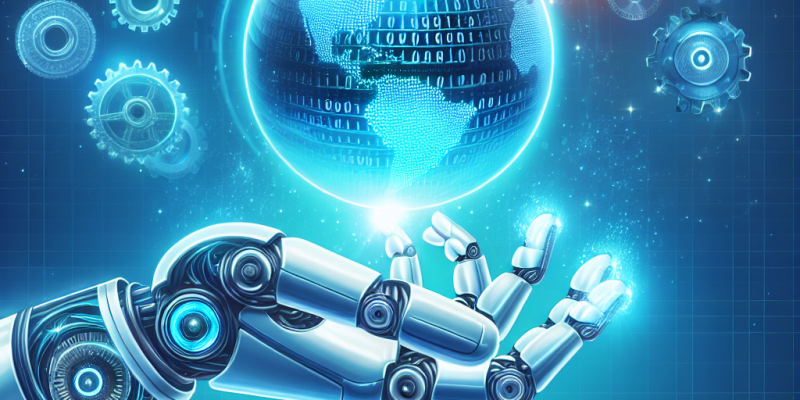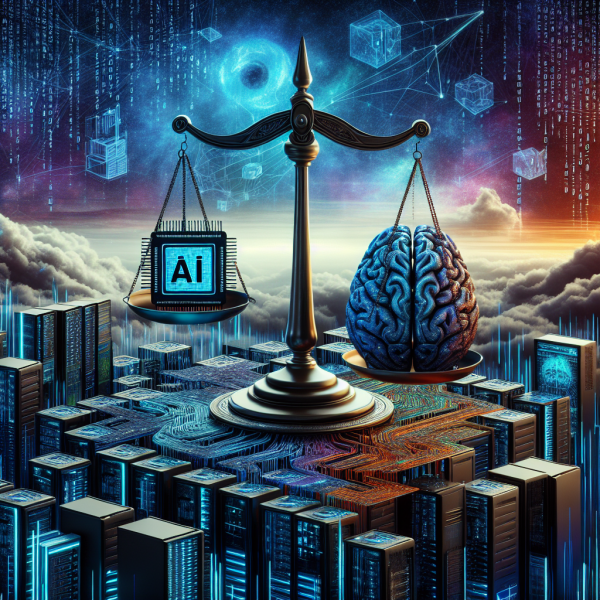Beyond Buzzwords: Real-World Applications of AI-Powered Automation

In an era where technology evolves at breakneck speed, artificial intelligence (AI) stands out not just as a buzzword but as a transformative force reshaping industries across the globe. While discussions about AI often get clouded by hype and jargon, exploring its real-world applications reveals the profound impact it has on enhancing efficiency, productivity, and innovation. This article delves into how AI-powered automation is being leveraged in various sectors, demonstrating its tangible benefits beyond mere theoretical frameworks.
1. Manufacturing: Streamlining Production Lines
In the manufacturing sector, AI-powered automation is not a futuristic concept but a present-day reality. Factories equipped with AI-driven robots and machine learning algorithms are experiencing increased efficiency and decreased downtime. These machines can adapt to changing demands, optimize production schedules, and predict maintenance needs before equipment failure occurs.
For instance, General Electric has adopted AI to monitor its jet engine production. By collecting data from sensors throughout the manufacturing process, the system can identify inefficiencies and propose improvements. This predictive maintenance capability ensures that machinery runs optimally, minimizing costly repairs and production delays.
2. Retail: Revolutionizing Customer Experience
Retailers are leveraging AI to enhance the shopping experience and streamline operations. From personalized marketing strategies to inventory management, AI automates processes that traditionally required significant human involvement.
Consider a fashion retailer employing AI algorithms to analyze customer purchase behavior and preferences. This data enables the business to create targeted promotions, suggest product recommendations, and even design new collections based on predicted trends. Furthermore, AI-driven inventory management systems can automate stock tracking, ensuring that popular items are always available while reducing waste from overstocked items.
3. Healthcare: Enhancing Patient Care
AI-powered automation is making inroads into the healthcare sector, where the stakes are incredibly high. From administrative tasks to clinical decision-making, AI is streamlining processes and allowing healthcare professionals to focus more on patient care.
For example, AI-enabled chatbots can handle patient inquiries and appointment scheduling, freeing up administrative staff for more complex tasks. Furthermore, AI systems such as IBM’s Watson are assisting physicians in diagnosing diseases by analyzing vast amounts of medical literature and patient data. This not only speeds up the diagnostic process but also helps in determining the most effective treatment plans tailored to individual patients.
4. Finance: Reducing Risk and Fraud
The finance sector has always been at the forefront of adopting automation technologies, and AI is taking this to the next level. AI algorithms can analyze transactions in real-time to detect potentially fraudulent activities, significantly reducing risk for financial institutions.
Companies like Mastercard employ machine learning models that assess transaction patterns and flag anomalies for further investigation. This not only protects consumers but also enhances the efficiency of payment processing. Wealth management firms are also using AI to develop algorithms that provide personalized investment advice, optimizing portfolios based on individual risk tolerance and market conditions.
5. Agriculture: Precision Farming
In agriculture, AI-powered automation is revolutionizing how food is produced. Precision farming techniques leverage AI to analyze soil health, crop conditions, and weather patterns, leading to informed decision-making that optimized yield and resource usage.
For instance, companies like Trimble use AI technology to create data-driven farming solutions. Farmers can monitor crop health through drones equipped with imaging technology, allowing them to target specific areas for irrigation or fertilization, thereby reducing waste and increasing productivity. This technology not only enhances efficiency but also promotes sustainable farming practices by minimizing the use of chemicals and water.
6. Transportation: Optimizing Logistics
The transportation and logistics industry is another sector reaping the benefits of AI-powered automation. AI systems are capable of optimizing routes, predicting delivery times, and managing supply chain logistics with unprecedented accuracy.
One notable example is Uber Freight, which uses AI algorithms to match truck drivers with available loads based on various factors, such as location, delivery time, and payment. This not only maximizes efficiency for transport companies but also ensures timely deliveries, enhancing customer satisfaction. Additionally, AI-driven analytics in fleet management can help companies monitor vehicle performance, plan maintenance schedules, and improve fuel efficiency.
Conclusion: The Future of AI-Powered Automation
As we move forward, the real-world applications of AI-powered automation will continue to expand and evolve. By transcending the initial buzzwords and focusing on practical implementations, businesses can harness the power of AI to solve complex problems, enhance operational efficiency, and drive innovation.
While challenges such as data privacy, ethical considerations, and the impact on employment will need to be addressed as AI technologies advance, one thing is clear: AI-powered automation is not just reshaping industries; it’s redefining the very nature of work itself. Embracing this technology today is not merely an option; it’s becoming a crucial requirement for competing in a rapidly changing global marketplace.














